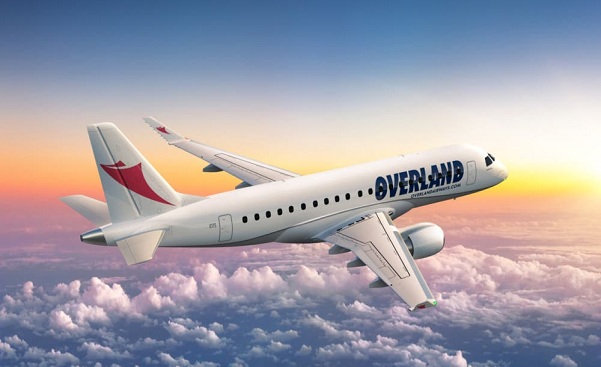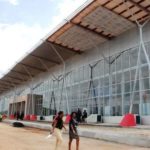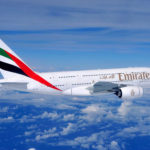
The major challenge domestic carriers face is their short life span, which is a major factor attributed to poor air transport system in Nigeria. Without long life span, the country’s airlines cannot grow, create good jobs, achieve high maintenance status and contribute significantly to nation’s Gross Domestic Product (GDP).
Many industry stakeholders, including operators and analysts, have at different fora, brainstormed on how Nigerian airlines can grow, what is inhibiting their growth and factors responsible for their short life span. Many attributed some of the factors to airlines, while others attributed it to policy summersault among other factors.
But many industry observers agree that the Nigerian environment is too harsh for successful airline operation and that explains why Nigerian carriers experience short life span. Ironically, foreign airlines see Nigerian destination as the most lucrative and most competed for in the African continent. So why is it that Nigerian airlines do not operate successfully and rarely have successful international operation?
ndustry analysts have pointed out key factors that contribute to poor performance of Nigerian airlines, which include the fact that major maintenance checks are done overseas, aviation fuel prices price fluctuates without warning and there could be periods of scarcity. Moving the product to the airport is fraught with difficulties and delays because even the busiest Nigerian airport, the Lagos airport has no fuel hydrants at the airside.
They also noted that lack of synergy between aviation agencies and airlines has its own contribution, remarking that aviation agency like the Federal Airports Authority of Nigeria (FAAN), which is a service provider and host to the airlines does not offer incentives to airlines like insurance cover for bird strike, damage to the aircraft by airside operators like drivers and others. The airlines bear the brunt of such excesses and deficiencies.
Cost of Maintenance
Former Managing Director of Ethiopian Airlines International Operations and currently Vice President, Ethiopian Cargo, Esayas WoldeMariamHailu once noted that it would be extremely difficult for an airline that maintains its aircraft overseas to operate profitably.
Ferrying aircraft overseas is very costly because in addition to the actual maintenance cost, the airline would have to pay for the ferrying of the aircraft, cost of pilots allowances, accommodation, parking charges and in the case of Nigeria, it is done at a huge exchange rate, considering the disparity in the value of the naira and other major currencies of the world.
Hailu said, “MRO is very important because aviation without MRO is incomplete. This is because the aircraft needs to be maintained, it has Achecks between every circle and then B and C checks are there. If we depend for our aircraft checks with other aircraft maintenance facilities and other things, they will be charging us hands and legs and it is not going to be sustainable. So we need to be very careful about being self-sustaining when it comes to maintenance. And as we earlier said safety is paramount so the maintenance needs to be regarded very importantly,” he said.
Industry observers agree that this is one major reason why Nigerian airlines find it difficult to make profit in their operation and while they do not exist for a long time. There are other factors, which include operating old equipment, which demands more money for maintenance, difficulty in the acquisition of spares, relatively low airfares due to the poor purchasing power of Nigerian travellers and government policies that are inimical to profitable flight operations like multi-designation of international airlines.
Breaking the Jinx
While many airlines have operated and gone under within average age of 10 years, Aero Contractors has remained the oldest with about 61 years of existence and 21 years as scheduled operator. This is followed by Overland Airways, which started in 2002, but many others that came after these airlines have gone under that today we have Dana Air, Arik Air, which are over 10 years old and Air Peace, which just clocked seven years. Industry observers are of the view that Air Peace holds the hope to be long-term major carrier in Nigeria.
When Air Peace started operation in 2014 with seven aircraft, not a few were sceptical about the future of the airline, looking with hindsight what happened to others before it and after. But at that time, it was the first airline in a long time that started with up to seven aircraft. That was surprising. It did not take time before the airline began to add more aircraft in its fleet. The airline has now become a beckon of hope to Nigerian travellers with its increase in aircraft capacity and the acquisition of brand new fleet.

Route Development
From all indications, it was obvious that from before Air Peace started flight operations, the management had in mind to connect every part of the country. That explained why the airline zeroed in to acquire more aircraft and from Boeing B737 to small-body aircraft, Embraer ERJ 145, a 50-seater aircraft for the short-haul and now the brand new Embraer E195-E2.
Recently Air Peace extended its wings to three new destinations- Ibadan in South West Nigeria, Gombe in North East Nigeria and Douala in Francophone West Africa.
Spokesman of the airline, Stanley Olisa said Air Peace was on a determined mission to ease the burden of air travel in Africa, with its exemplary no-city-left-behind initiative, which has seen it open more routes than any other indigenous airline.
“Considering the Leviathan milestones that the airline has made, it is incredible to many that Air Peace has been around for just about seven years. With these newly launched routes, Air Peace now boasts of 19 domestic routes, six regional routes and two international destinations, with numerous strategic connections locally, in response to the needs of the Nigerian flying public. It is evident that the airline is providing a huge succour to Nigerian air travellers by plugging the lacunas in the nation’s air transportation,” he said.
The airline currently employs about 4, 000 personnel and has embarked on many corporate social activities to support Nigeria and Nigerians. But the creation of jobs is very critical that industry stakeholders said the airline, like other domestic carriers, deserve incentive from government to continue to sustain its operations to retain and even increase its workforce, as the highest employer among the airlines.
Building Strong Carrier
Commenting on the future of the airline, the CEO of Mainstream Cargo Limited, Seyi Adewale, said Air Peace Limited has done very well and has proven the followings in the first instance: that it is possible for a wholly owned Nigerian airline to operate successfully despite the difficult aviation terrain; that through the vision, passion, commitment, professionalism and national pride of one man (in this case Barr. Allen Onyema) an airline can prosper and be dogged to succeed and that it is possible to connect all the dots (states and region) through a well thought out partnerships and deliberate strategy.
Adewale also stated that the airline has also proven that a Nigerian airliner could be disciplined in its aircraft maintenance culture; that it is possible to be faithful to its financial partners, investors and most especially bankers in meeting financial obligations as at when due. He said it maintains leadership in the aviation space whereby many entrepreneurs (investors) are inspired to toe the line, model and success of Air Peace and that there are opportunities for Nigerian airliners to venture into the very difficult terrain of long haul flights.
He also observed that the airline has been able to retain many of the workers that started off with it at the onset, attracted and retained high flyers and built and trained a competent workforce.
“Lastly, that Nigerian passengers deserve the very best so Air Peace procured 13 brand new Embraer E195-E2 aircraft into its fleet and four of that have already been delivered. My candid suggestion to Air Peace management is to know that there are different business horizons and that each horizon needs new thinking and corporate strategy. Air Peace is in a new horizon and needs to reappraise itself, renew its vision and business model in order to meet today’s needs and challenges.
“In addition, Air Peace should work on building/ developing loyalty to its brand from staff and business partners. With this, the airline will build a legacy. The next hurdle / milestone for Air Peace is to cross the mean longevity of airlines in Nigeria which is in about 3-4 years time in flying colors,” Adewale said.
Progress for Domestic Airlines
The Managing Director of Flight Logistics Solutions, Amos Akpan told THISDAY that for domestic airlines to succeed there should be marked progress in their operation.
“Progress for domestic airline means increased patronage which also means increased flight frequency and provision of more capacity. There are routes to establish, more aircraft to deploy, more training of personnel, improved quality of service.
“Air Peace filled the vacuum left by Arik Air in terms of domestic air links. Air Peace has increased the number of airports actively receiving flights in Nigeria. Air Peace has to continue to liaise with NCAA (the Nigerian Civil Aviation Authority) to remain compliant with regulations. In addition, Air Peace has to do more of finding out what the traveling public wants from them and find ways to satisfy them. On-time departures and arrivals are very important to the Nigerian traveller. Ease of flight reservation and check-in for flight is important. Management of passenger emotions is very important because the environment is very unfriendly to the passenger and the airline,” he said.
Why Nigerian Airlines Fail
The Chief Operating Officer of TAL Helicopters, Femi Adeniji, pointed out key factors that make Nigerian airlines fail. He said that government sees airlines as big boys business, not an economy development business for the country, noting that there are no support from the government in benefits such as tax credits, tax exemption for new business like five years tax free in USA, Customs waivers on import of aircraft for commercial aircraft, parts to support the operation, fuel tax exempt on commercial aircraft and others.

“On the airliners, the agencies such as NCAA seeing the airliners as cash cows, tries to make things difficult for you instead of supporting the existence of the airlines. There is also the issue of unstable Naira against dollars and high bank interest rate (double digit). Your business plan is based on certain exchange rate but unfortunately it ends up higher. Example, TAL started with the bank facility at $1.00/160.00, now the rate is $1.00/560.00 and the charges to the customers have not changed. This is where the government is expected to come in with a support supplements. The United States of America just supported the airlines with $8 billion. In Nigeria, it is nothing,” he said.
According to Adeniji, the solution to this is a complete overhaul of the NCAA with people who will understand airline business, a board that could take control of the work ethics of the agencies.
“The banks unwillingness to take risk due to their not understanding aviation industry, rendering 6-18 months moratorium as against 24- 30 months as being practiced by foreign counterpart. Airports are not operating 24/7; 0600 – 2000 hour if lucky; this is due to security concerns and inoperative of some airports equipment and lack of essential personnel,” he added.
Above all, industry experts have posited that whether an airline would succeed or fail is dependent on government. In other words, government holds the key to the survival of Air Peace and other domestic carriers.






